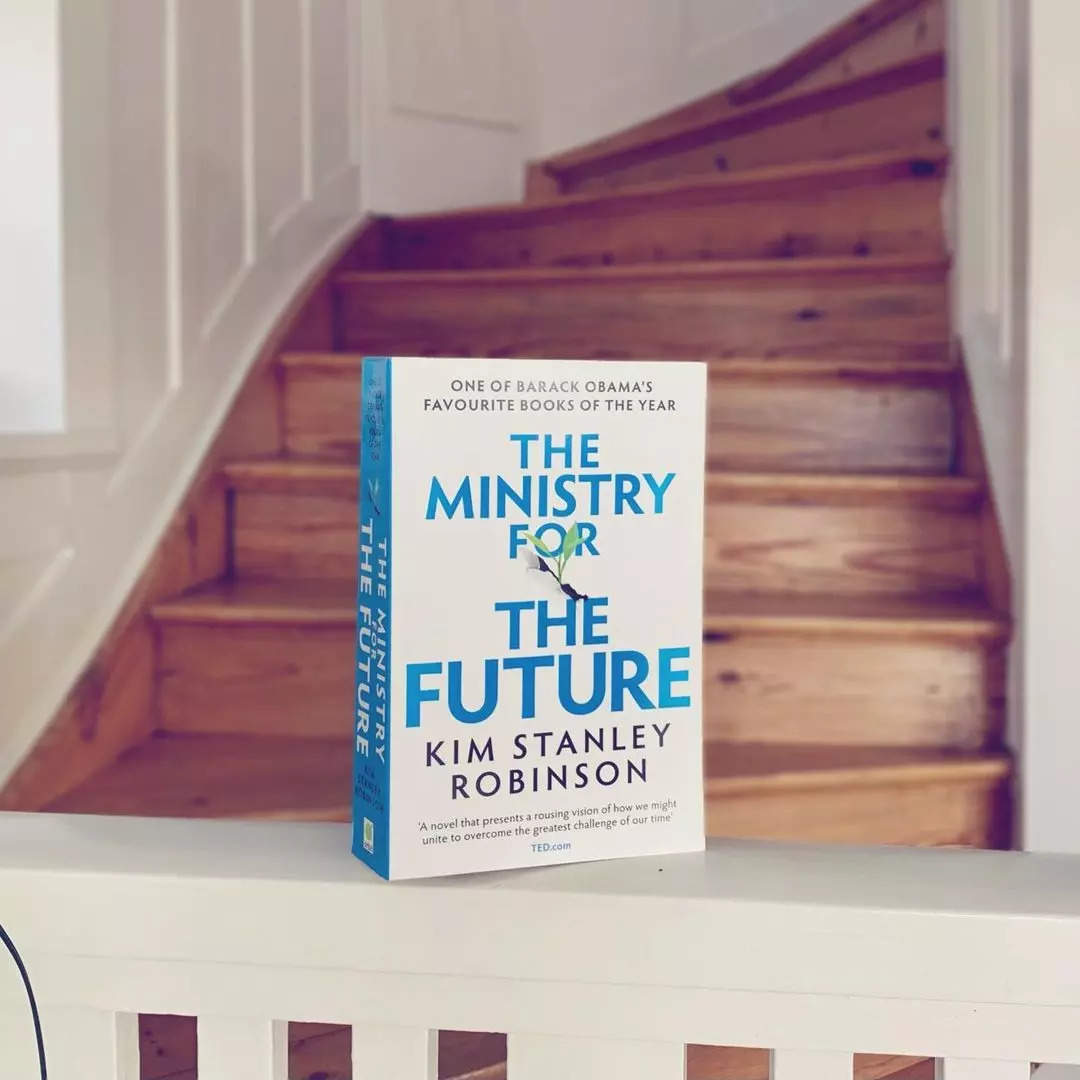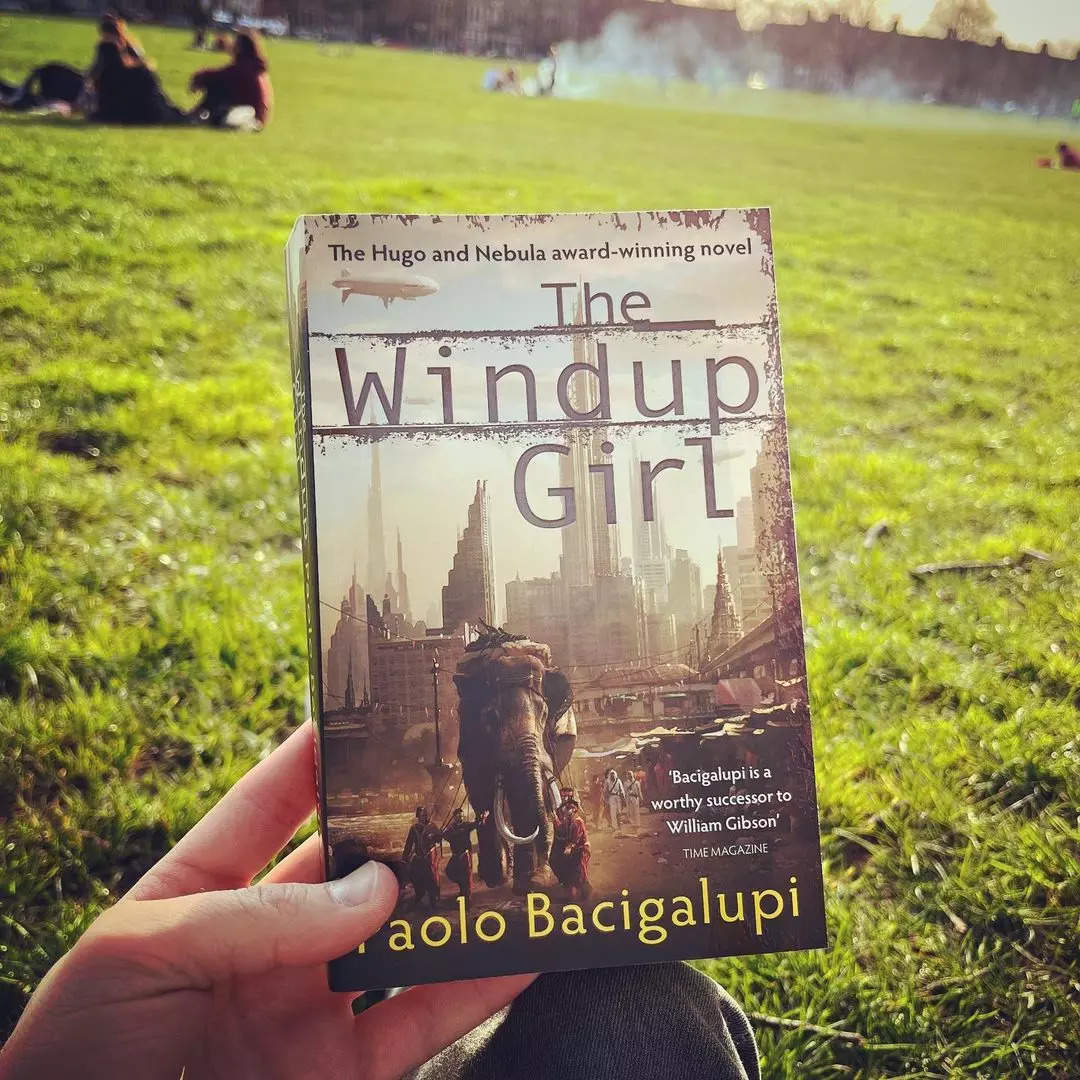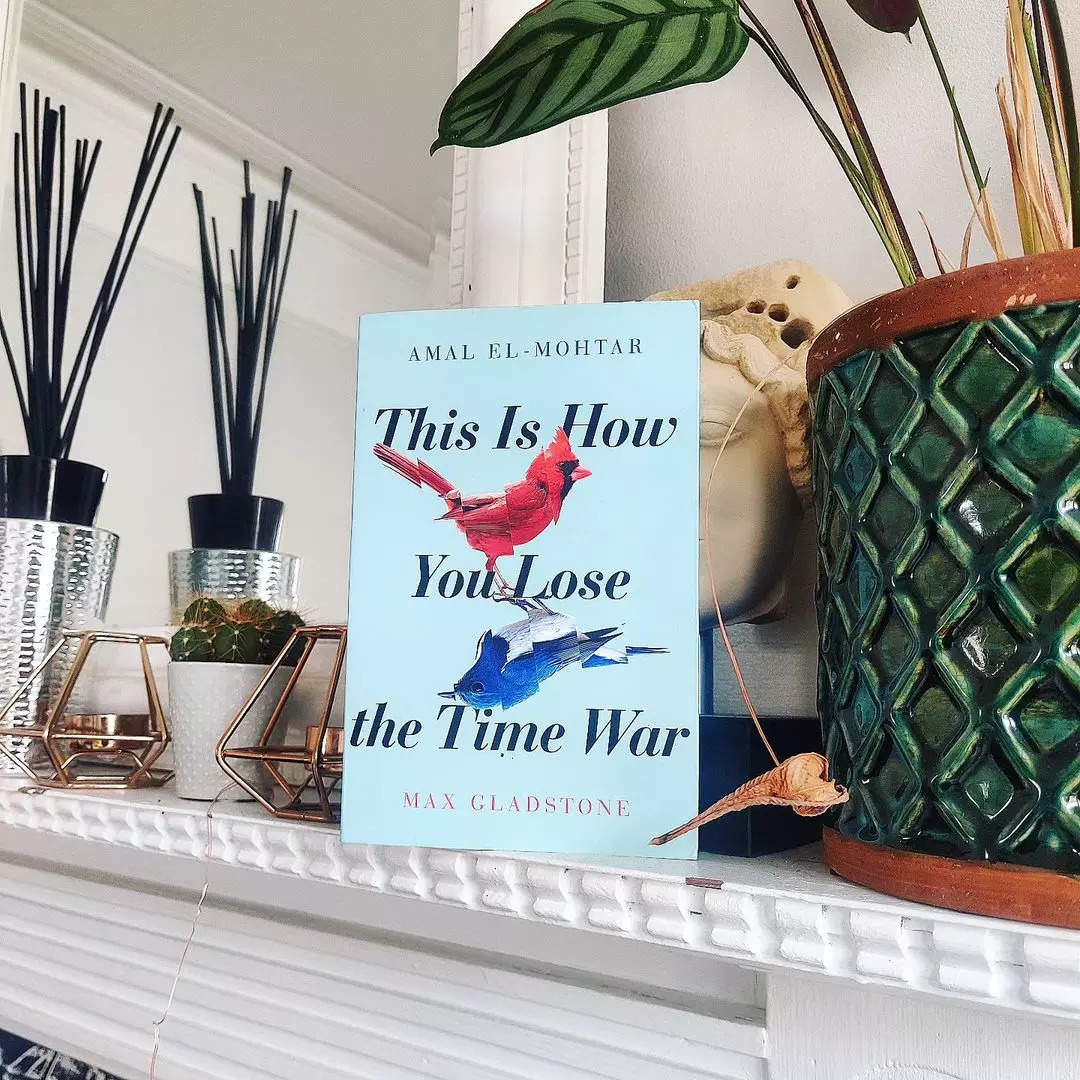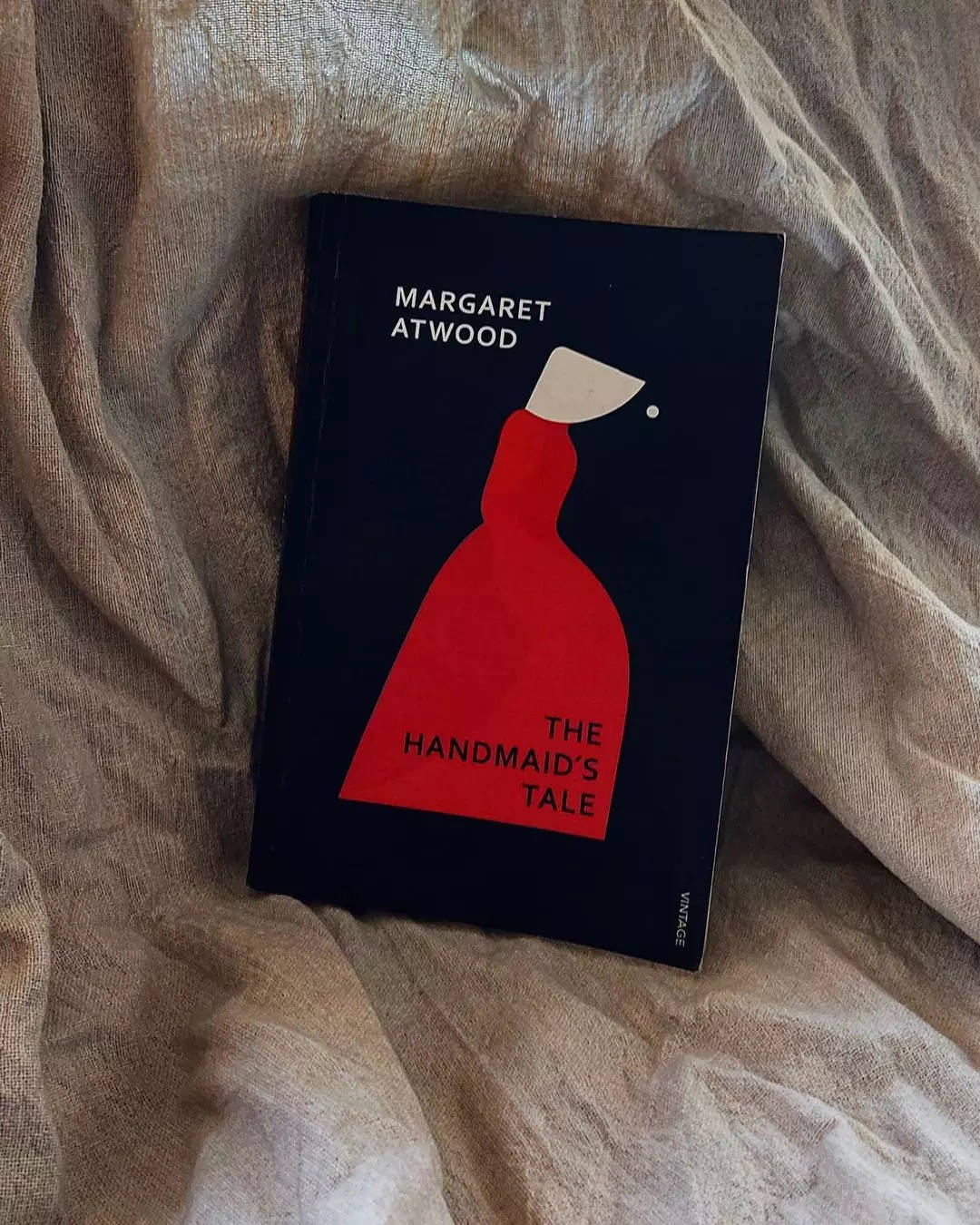12 Sci-Fi Books That Teach You About The Future Better Than Any Scientist (Image credit: Instagram)
Science fiction Science fiction has long been the genre that pushes the boundaries of the imagination, diving into possible futures shaped by technology, society, and the human condition. Through futuristic settings, advanced technologies, and explorations of unknown worlds, these stories reveal more about where we’re headed than some of the best scientific studies. The books on this list do more than entertain—they challenge us to think critically about what the future might hold and how we, as a society, might adapt. From dystopian warnings to utopian possibilities, these 12 science fiction books explore the future with perspectives that resonate today, offering wisdom about where we might go and how we can shape that journey.
1. The Ministry of the Future, by Kim Stanley Robinson
‘The Ministry of Future’ is a visionary novel that explores how humanity might respond to the looming threat of climate change. Set in a near future where extreme weather events have become catastrophic, the novel follows an international organization tasked with protecting future generations. Kim Stanley Robinson combines scientific accuracy with political and social insight, showing how global cooperation and technological innovation could be the key to overcoming the climate crisis.

2. The Left Hand of Darkness by Ursula K. Le Guin
Le Guin’s The Left Hand of Darkness is a thought-provoking exploration of gender, culture, and diplomacy. Set on a planet whose inhabitants are androgynous, the novel questions the binary nature of gender and forces readers to reconsider their assumptions about identity and society. As we move toward a more inclusive future, this book offers valuable insights into how social norms may evolve and how we can navigate those changes.
3. Neuromancer by William Gibson
Considered one of the defining works of cyberpunk, ‘Neuromancer’ is a fast-paced thriller that delves into the world of artificial intelligence, cyberspace, and corporate control. William Gibson’s vision of the future is one where technology blurs the line between reality and virtual worlds, offering a prescient glimpse into the rise of the internet and its impact on society. The novel explores issues such as AI ethics, piracy, and corporate dominance – themes that continue to shape our world today.
4. The Mechanical Girl by Paolo Bacigalupi
Set in a future where climate change and bioengineering have drastically altered the world, ‘The Mechanical Girl’ imagines a future defined by environmental collapse and genetic manipulation. Bacigalupi’s novel teaches us about the potential dangers of unchecked genetic engineering, environmental degradation, and corporate control over resources. This cautionary tale shows how scientific advances can be a double-edged sword, leading to both progress and destruction.

5. Brave New World by Aldous Huxley
In Brave New World, Huxley imagines a future in which human beings are controlled through genetic engineering, psychological manipulation, and an emotion-suppressing drug called Soma. The novel offers a harsh critique of a society that prioritizes stability and conformity over individual freedom and creativity. Huxley’s warning about the dangers of a society obsessed with pleasure and control remains incredibly relevant in an age of consumerism and technological advancement.
6. The Diamond Age, by Neal Stephenson
‘The Diamond Age’ takes us into a future dominated by nanotechnology, where personalized, interactive books can teach children about the world and shape their development. Neal Stephenson’s novel offers a vision of how technology could revolutionize education and society, creating new opportunities for learning and individual growth. The book also raises questions about inequality and how technology could widen the gap between rich and poor.
7. Klara and the Sun by Kazuo Ishiguro
Kazuo Ishiguro’s “Klara and the Sun” presents a haunting vision of a future in which artificial intelligence is integrated into everyday life. The story follows Klara, an AI companion for children, as she explores her understanding of human emotions, relationships, and the role of technology in society. Ishiguro’s exploration of AI’s potential to replace human connections raises ethical questions about the future of technology, love, and humanity.
8. Frank Herbert’s Dune
Frank Herbert’s Dune is a monumental work that explores the future of humanity through ecology, politics and religion. Set on the desert planet Arrakis, the novel examines the complex interplay between power, resources and environmental stewardship. With themes such as imperialism, resource management and ecological balance, Dune teaches us about the delicate relationship between humanity and the natural world, offering lessons that are increasingly relevant as we face climate change.
9. This is How You Lose the Time War, by Amal El-Mohtar and Max Gladstone
This unique novel is a poetic, time-bending story about two rival agents from warring futures who fall in love through letters sent across time and space. As the story unfolds, “This Is How You Lose the Time War” explores themes of power, rebellion, and connection, offering readers a glimpse into how technology, war, and love might evolve in the distant future. The book beautifully blends science fiction with lyrical prose, offering a meditation on the nature of time and fate.

10. Liu Cixin’s Three-Body Problem
Liu Cixin’s The Three-Body Problem offers a unique perspective on the future of humanity through the lens of first contact with an extraterrestrial civilization. The novel raises questions about technological advancement, ethics, and the fate of humanity in the face of an overwhelming existential threat. Its exploration of the scientific method, game theory, and cosmic sociology make it one of the most intellectually stimulating science fiction novels of the 21st century, offering lessons about cooperation, survival, and the unknown.
11. Station Eleven by Emily St. John Mandel
Set in a post-apocalyptic world where a pandemic has wiped out most of humanity, Station Eleven explores themes of survival, art, and what it means to be human in a collapsing civilization. Through its examination of how people rebuild after a catastrophe, the novel offers insights into resilience, community, and the importance of culture. Mandel’s vision of the future is both haunting and hopeful, reminding us that even in the darkest of times, humanity can find ways to endure.
12. The Handmaid’s Tale by Margaret Atwood
Margaret Atwood’s “The Handmaid’s Tale” presents a terrifying dystopian future in which a theocratic regime strips women of their rights and reduces them to mere reproductive vessels. The novel explores themes of power, gender, and resistance, offering a chilling warning about the fragility of women’s rights and the potential for authoritarianism to take hold in society. “The Handmaid’s Tale” remains essential reading for understanding the dynamics of power and control in a future that seems all too possible.

Science fiction often serves as a mirror, reflecting our current concerns through visions of the future. These 12 books not only entertain with imaginative worlds, but also give us valuable insights into the direction humanity might be headed. From ecological warnings to ethical dilemmas, each of these novels offers lessons that can help us navigate the complexities of modern life and anticipate the challenges of the future.
Disclaimer:
The information contained in this post is for general information purposes only. We make no representations or warranties of any kind, express or implied, about the completeness, accuracy, reliability, suitability or availability with respect to the website or the information, products, services, or related graphics contained on the post for any purpose.
We respect the intellectual property rights of content creators. If you are the owner of any material featured on our website and have concerns about its use, please contact us. We are committed to addressing any copyright issues promptly and will remove any material within 2 days of receiving a request from the rightful owner.

